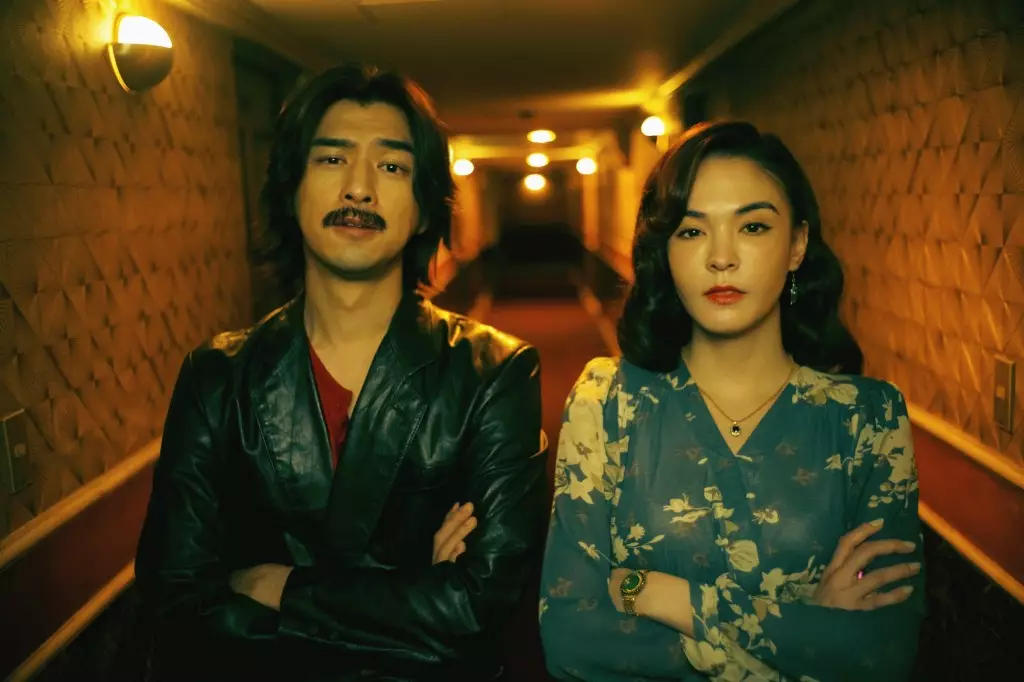The upcoming Golden Horse Awards are poised to shine a spotlight on cinematic excellence, with John Hsu’s horror-comedy feature, *Dead Talents Society*, leading the charge with an impressive tally of 11 nominations. This film not only illustrates Hsu’s knack for combining humor with horror but also serves as a testament to the creative spirit thriving within Taiwan’s film industry. It is set against a quirky backdrop where ghosts compete for their place in the human realm, blending supernatural elements with comedic undertones that resonate with audiences. Produced by Taiwan’s own Activator Co., in collaboration with Sony Pictures International Productions, the film exemplifies how local talent can propel a compelling narrative into the broader cinematic landscape.
Following closely in the nomination race are *Yen And Ai-Lee* by Tom Lin and *Bel Ami* by Geng Jun, each securing eight nominations. This competitive spirit reflects the strength and diversity of storytelling present in the current Taiwanese film scene, where both seasoned and emerging filmmakers showcase their creative prowess.
The quest for *Best Narrative Feature* sees *Dead Talents Society* facing off against *Bel Ami*, along with *All Shall Be Well* by Ray Yeung, *Stranger Eyes* by Yeo Siew-hua, and *An Unfinished Film* by Lou Ye. Each of these films brings its unique voice and perspective, expanding the narrative artistry treasured in the Golden Horse Awards. The equal representation in the *Best Director* category intensifies the competition, demonstrating that innovative storytelling is not confined to a single genre.
The nominations for *Best Leading Actor* reveal a diverse array of talent, including established names like King Jieh-wen for *A Journey In Spring* and Chang Chen for *The Embers*. Particularly noteworthy is Wanlop Rungkumjad, a Thai actor whose performance as a migrant care worker in *Mongrel* not only earned him a nomination but also acclaim at the prestigious Cannes film festival, where the film received a Camera d’Or Special Mention.
A key highlight of this year’s awards is the *Best Leading Actress* category, featuring powerful performances from Kimi Hsia and Sandra Ng, each delivering memorable roles that underscore the strength of female talent in Taiwanese cinema. The inclusion of both seasoned actresses and newcomers reflects a healthy diversity, illustrating the industry’s evolving landscape.
Moreover, the nominations for *Best Supporting Actress* and *Best Supporting Actor* bring attention to the nuanced performances by figures like Sandrine Pinna, who represents a new wave of talent celebrated for their dynamic contributions to the film community.
Lastly, the *Best New Director* nominations celebrate budding filmmakers like Qiu Yang, who received recognition at the Berlin Film Festival for *Some Rain Must Fall*, alongside others who have made significant impacts in their debut features. This category particularly highlights the burgeoning talent emerging from Taiwan, suggesting a bright future ahead.
As the Golden Horse Awards approach, they serve not merely as a ceremony of awards but as an occasion to celebrate the rich tapestry of artistry in Taiwanese cinema. With *Dead Talents Society* leading the nominations, the expectation is high for a vibrant event that honors not only established figures but also the fresh voices that will define the future of film. This year’s nominations encapsulate a wide range of genres and themes, promising viewers a multidimensional viewing experience that goes beyond entertainment, paving the way for deeper discourse on the art of storytelling in film.

Leave a Reply